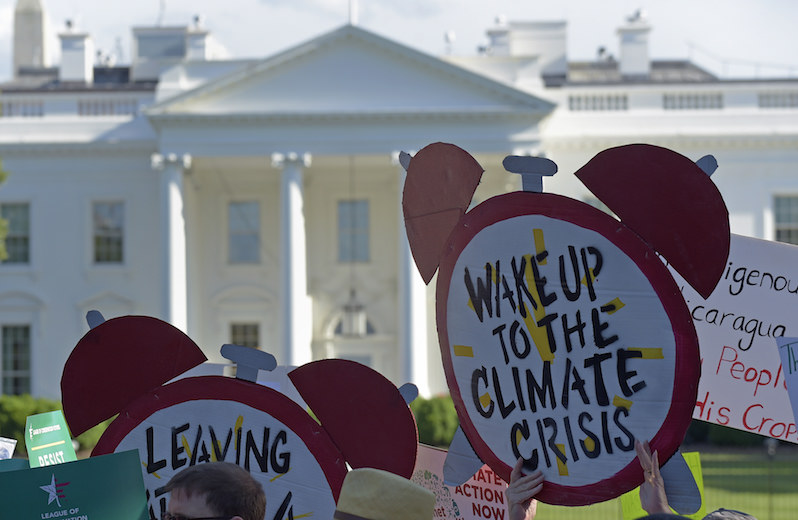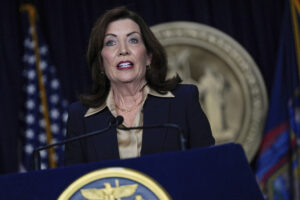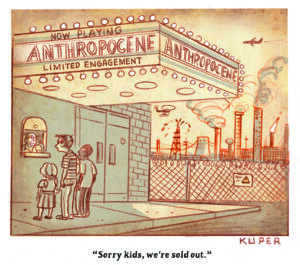As the Extreme Right Battles a Centrist Democratic Party, Progressives Are Left Out
The interests of most Americans are lost in the struggles between the dominant sectors of both parties, which favor corporate interests over basic human rights and needs. Protesters gather outside the White House on Thursday to protest President Trump's decision to withdraw the U.S. from the Paris climate change accord. (Susan Walsh / AP)
Protesters gather outside the White House on Thursday to protest President Trump's decision to withdraw the U.S. from the Paris climate change accord. (Susan Walsh / AP)
Protesters gather outside the White House on Thursday to protest President Trump’s decision to withdraw the U.S. from the Paris climate change accord. (Susan Walsh / AP)
Our current political moment is being interpreted as a battle between compassion and cruelty, between reason and irrationality. But it ought to be viewed as a fight between two limited sectors of the political spectrum: the extreme right and the center, both of which care more about corporate power than about ordinary Americans. The difference is the degree to which cruelty and irrationality reign. The weak reforms implemented and backed by Democrats have only provided fodder for their rivals instead of bulwarks against extremism.
Take the example of financial regulation of Wall Street. After the 2008 recession, President Barack Obama chose not to hold big banks and financial institutions accountable. In the words of journalist Gary Younge, “Faced with the choice of preserving the financial industry as it was or embracing far-reaching reforms that would have served the interests of those who voted for him, [Obama] chose the former.” At a time when Democrats dominated Congress and the White House and when Obama had the mandate both politically and legally to take drastic action to penalize the firms that generated the fiscal crisis and hurt Americans, he chose business as usual. The strongest reform came in the form of the Dodd-Frank bill that helped, among other things, to create the Consumer Financial Protection Bureau (CFPB), one of the only federal agencies advocating for consumer rights. But critics argued that Dodd-Frank didn’t come nearly close enough to preventing future crises, dealing with the housing crash or addressing skyrocketing inequality. The act should have been a first step toward financial reform. Instead it was the Democrats’ final word on the matter.
Seven years after Dodd-Frank was enacted, the Republican Party is enjoying a political role reversal, controlling both chambers of Congress and the White House and is wasting no time in undoing Dodd-Frank. The House Financial Services Committee in early May passed a nearly 600-page bill called the Financial Choice Act which could be sent to the entire House of Representatives for a vote as early as this month. The bill reverses many provisions of Dodd-Frank and neuters the CFPB.
Ironically, it was the very weakness of Dodd-Frank that proponents of the Financial Choice Act invoked to justify the new bill. Republican Rep. Bill Huizenga, the chair of the House Subcommittee on Capital Markets, Securities & Investment, wrote an op-ed in USA Today supporting the Financial Choice Act, because Dodd-Frank was, he said, “failing to address the actual cause” of the 2008 financial crash. Huizenga proclaimed, “Under Dodd-Frank, the largest banks have gotten bigger, and small banks have disappeared at an alarming rate. Even worse, Dodd-Frank enshrined ‘too big to fail,’ which is why some of the largest financial institutions support it.”
But instead of supporting legislation that might give Dodd-Frank some much-needed teeth, Huizenga and his Republican colleagues want to weaken it further. To oppose deregulation, liberals and progressives are left defending a weak and inadequate law—because that is all the Democrats delivered.
On many other issues of importance, Democrats chose the center instead of the left, and the failings of those choices became weapons which Republicans then used, not to fix the broken system, but to try to dismantle the original milquetoast reforms altogether simply because their critiques are valid even if their solutions will exacerbate the crises.
Another issue currently making headlines is the Paris climate accord. The historic treaty that emerged from the COP21 meeting in December 2015 was lauded by most of the world’s heads of state, including European leaders, as the best hope for staving off global warming. President Obama hailed the accord, saying, “If we follow through on the commitments that this Paris agreement embodies, history may well judge it as a turning point for our planet.” But on the ground in Paris, activists denounced the accord as simply not good enough, and more decorative than substantive. Still, liberal leaders throughout Europe and the world joined their counterparts in the U.S. to celebrate the weak agreement as best as they could in the face of environmental catastrophe. Hillary Clinton’s campaign manager, John Podesta, was exposed for labeling Sen. Bernie Sanders a “doofus” in private for criticizing the Paris deal during the primary season. Sanders rightly characterized the Paris accord as too weak to curb climate change.
Donald Trump has now announced that he will pull the U.S. out of the Paris deal entirely, seeing even this anemic and mostly symbolic deal as an affront to conservative free-market ideals. An argument in the right-wing journal National Review describes the impetus for staying in the agreement as “non-existent,” because “even its supporters say [it] is mostly an exercise in window dressing—that is, when they aren’t insisting that the fate of the planet depends on it.”
Writer Rich Lowry is correct in pointing out the utter lack of teeth in the Paris agreement. But rather than endorse a stronger deal, he recommends no deal at all, writing that “Trump should say farewell to Paris on his own, and never look back.” Again, conservatives are able to use the clear weakness of a liberal Democratic achievement and make the case for going backward rather than forward. And after all, conservatives are unsurprisingly pushing for the status quo — it is part of the very definition of the label they use for themselves. But how can Democrats claim progressive credentials when time and again they triumphantly back policies that achieve so little progress? The Affordable Care Act (ACA) is yet another example of centrist failure. By throwing their political weight behind a deeply flawed bill that didn’t go nearly far enough to protect Americans from medical bankruptcies, Democrats and their progressive allies were left making the case that Obamacare was the best we could hope for in terms of health care reform. Democratic leaders shot down the idea of a single-payer system in order to preserve the health insurance industry. In turn, Republicans deftly used the failings of the health reform act and deployed those failings as a justification to make things worse rather than better. To be fair, Republican governors did their best to ensure the act’s failure. Still, a simple and elegant Medicare-for-all bill would have been far more difficult to undermine. But the sharp increase in premium costs in the individual market and the inapplicability of subsidies for middle-class Americans opened the law up to legitimate criticism, enabling Republicans and Trump to rail against it repeatedly, saying that it was “imploding,” “collapsing” and in a “death spiral.”
Rather than push for a single-payer system, which continues to remain popular (in California, a whopping 70 percent of people support a statewide single-payer system), the Republican Party has of course opted to go backward and has voted to simply dismantle many popular provisions of the ACA.
Washington is flooded with those who represent the corporate class and few who actually represent ordinary Americans, so it should not surprise us that the clashes we are witnessing are often over the degree to which ordinary people must bow down to capitalist greed. The Democrats’ continued refusal to live up to their progressive ideals has come back to haunt us again and again. That is simply because the liberal party has thrown in its lot with Wall Street and protects corporations over people. It does so with perhaps a touch more compassion than its rival party.
This devil’s deal has provided ample fodder for right-wing extremists to discredit the Democrats and undo their weak reforms. When progressives see this clearly they can better tackle the longstanding policies of both parties to favor corporate interests over basic human rights and needs.
Dig, Root, GrowThis year, we’re all on shaky ground, and the need for independent journalism has never been greater. A new administration is openly attacking free press — and the stakes couldn’t be higher.
Your support is more than a donation. It helps us dig deeper into hidden truths, root out corruption and misinformation, and grow an informed, resilient community.
Independent journalism like Truthdig doesn't just report the news — it helps cultivate a better future.
Your tax-deductible gift powers fearless reporting and uncompromising analysis. Together, we can protect democracy and expose the stories that must be told.
This spring, stand with our journalists.
Dig. Root. Grow. Cultivate a better future.
Donate today.








You need to be a supporter to comment.
There are currently no responses to this article.
Be the first to respond.